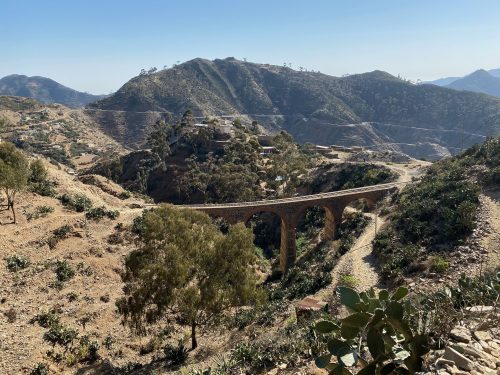
‘Nationality: British Citizen, Date of Birth: 24th April 1950, Place of Birth: Asmara Eritrea…’, I have been filling in these details on forms for the last 70 years. Asmara always sounded exotic – but I knew very little about my birthplace. This all changed after my visit to Eritrea with my husband on our way back home after seven wonderfully blissful days at Angama Mara.
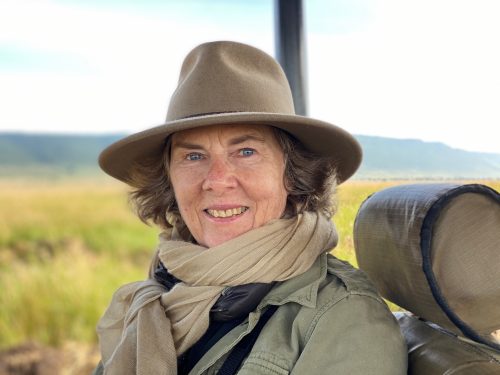
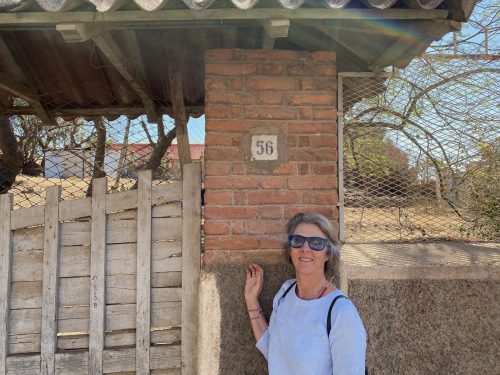
Our journey began with getting our visas at the Eritrean Embassy in London. My ‘Place of Birth’ caused gasps of astonishment – how on earth was I born there? This was my first experience of the warmth and generosity of the Eritrean people.
How was I born there? My father was a doctor in the British army and was posted there for three years from 1949 to 1952 when the British had taken over Eritrea as a protectorate just before the federation of Eritrea with Ethiopia. The British were one of many who had occupied Eritrea and made a mark on the country – from the Egyptians to the Arabs, Turks, Italians and latterly the Ethiopians.
Our mission was to find my place of birth, where we lived and the church where I was christened. We dug out an old family album and found pictures of the house, garden and its address, together with a record of my baptism.
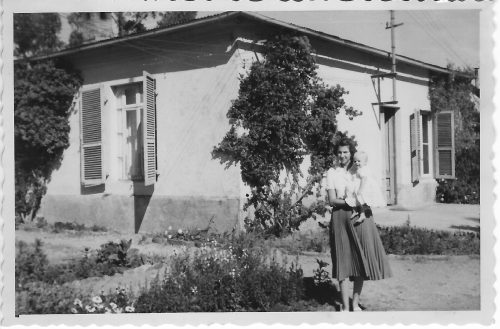
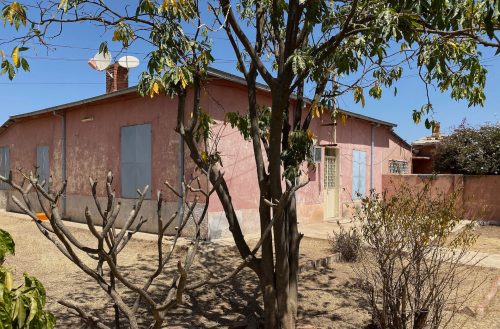
As with everything in Eritrea – the house and garden in Asmara were recognisable, but dilapidated. My parents lived there at a time when the Italians had built up the country – beautiful buildings, railway line to the coast, 112km road to the coast (which took just six months to build and drops 2,350m down to Massawa on the Red Sea), and a cable car for transporting goods to and from Massawa. There were successful farms, vineyards and over 600 factories – all now gone and only remembered by the elderly.
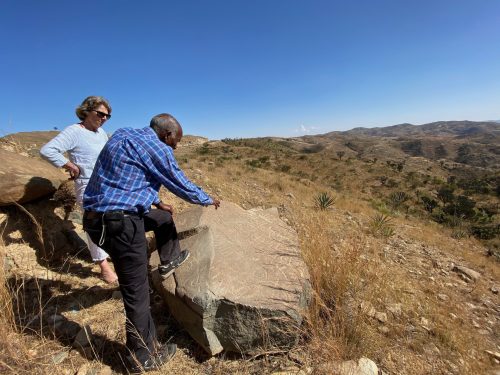
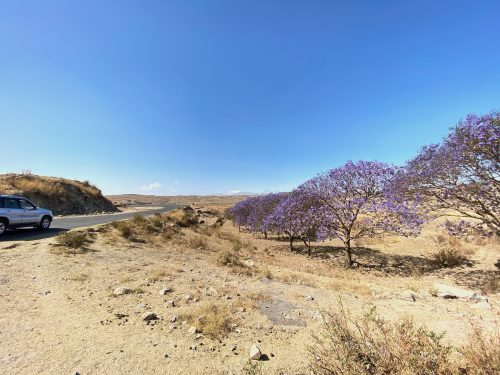
Our guide, Pietros Sebhat, was one of these people. He spoke fluent Italian, knew all the history and had many contacts. One of these led to us visiting the old British Military Hospital where I was born. Now the Asmara Inail Hospital, it has been totally renovated with Italian backing. It has 70 beds and four state-of-the-art operating theatres - all fully equipped. We were told the maternity ward was now probably one of the operating theatres – it’s a strange feeling to be in the room where you were born.
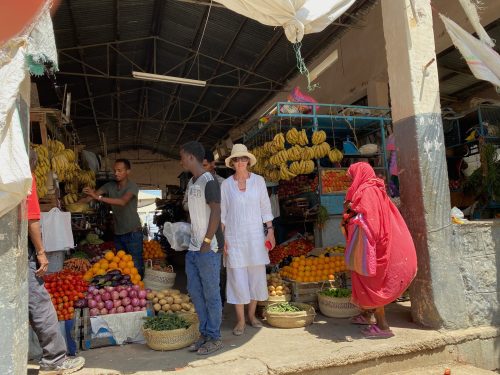
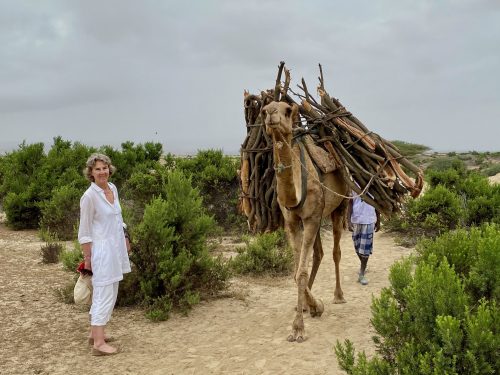
Our guide had told us of many instances where money had been poured into the country – a new freeport in Massawa, fish processing factory on the coast, storage facilities – all beautiful and new but unused and deteriorating. We hope the hospital will not fall into this category.
It was quite difficult to find All Souls Church where I was christened. We asked nuns and Franciscan friars and ended up getting the information from Alisdair Walker, the British Ambassador. He had an old file showing that All Souls Church no longer existed but indicated the location of the replacement church, St Georges, built on the original site.
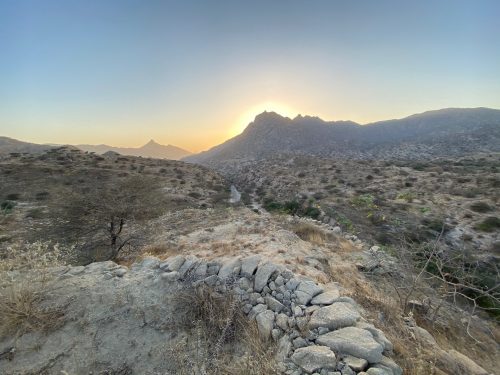
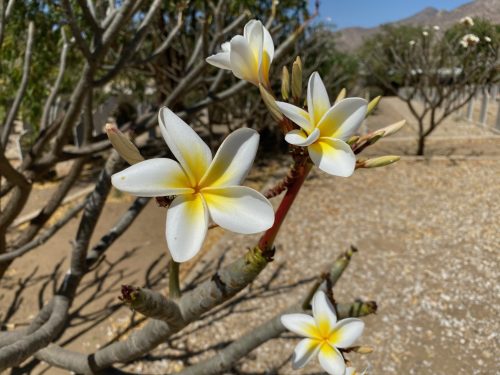
We also travelled to another two cities; Keren in the highlands to see a pastoral centre and to understand the decisive battle fought between the Italians and the British in 1941 and Massawa on the coast. This is where my parents would take the four-hour train ride down to the sea for holidays.
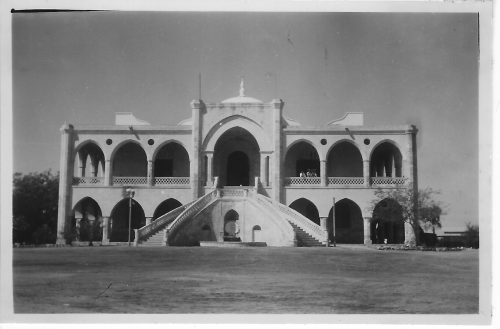
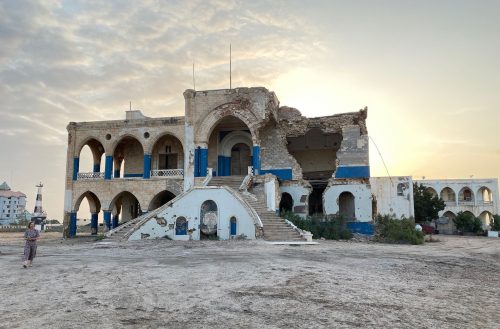
The Governor’s Palace there, requisitioned as the Officers Mess, where they may have stayed is a now blown apart – forlorn with rusted ceiling fans telling of times gone past. This was shelled in the battle of independence as it had been Haile Selassie’s summer residence during the federation between Eritrea and Ethiopia.
How I wished I could go home and speak to my parents about all this. How it was for them and to hear how much they must have loved it. This feeling of deep regret and sadness tinged my time in the country – but I still loved it. It is beautiful and the people are warm and giving.
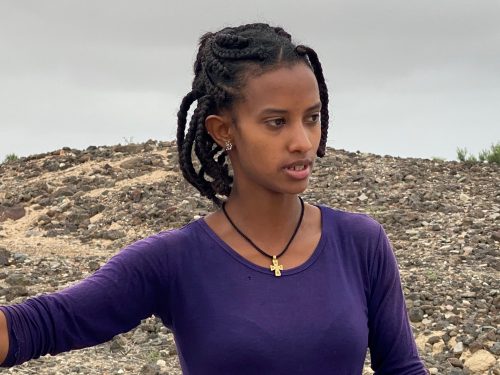
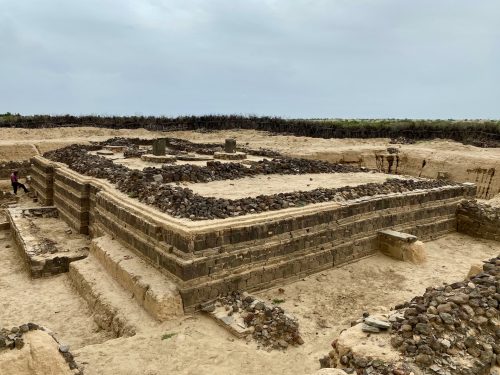
Would we go back? The cycle ride down the stunning 112km road, or railway line, which drops down the escarpment from Asmara to Massawa would be tempting. The Axumite history (of which there are a few sites, notably in Adulis), is fascinating. The scenery is stunning along with the wildlife and flowers to be found.
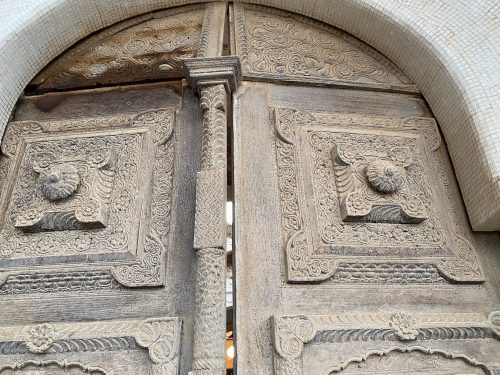
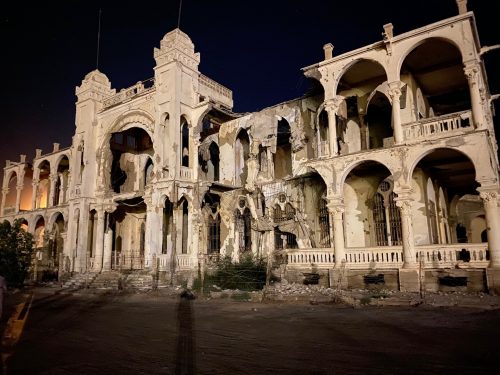
It’s probably not the easiest place to visit – the first travel agent we approached stated it was too soon to travel there. You need to be adventurous and happy without hot water or internet access. But it was amazing, sad, beautiful, African and European all mixed into one – a total paradox. The hotels are clean, the people wonderful, the architecture still amazing in its faded glory and the Italian cuisine and coffee exceptional.
I love the land of my birth – go there if you are adventurous.
Filed under: East Africa Travel
Subscribe for Weekly Stories
Comments (4):
13 September 2020
Beautifully presented - heartfelt - marvelous thing to do - to find one's roots, to reconnect, to admire. A lovely capsule. Thank you.
5 August 2020
Lovely heartfelt story and certainly inspires a visit! Thanks.
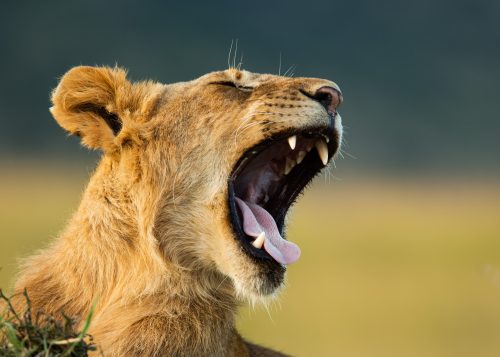
Angama Safari Offers